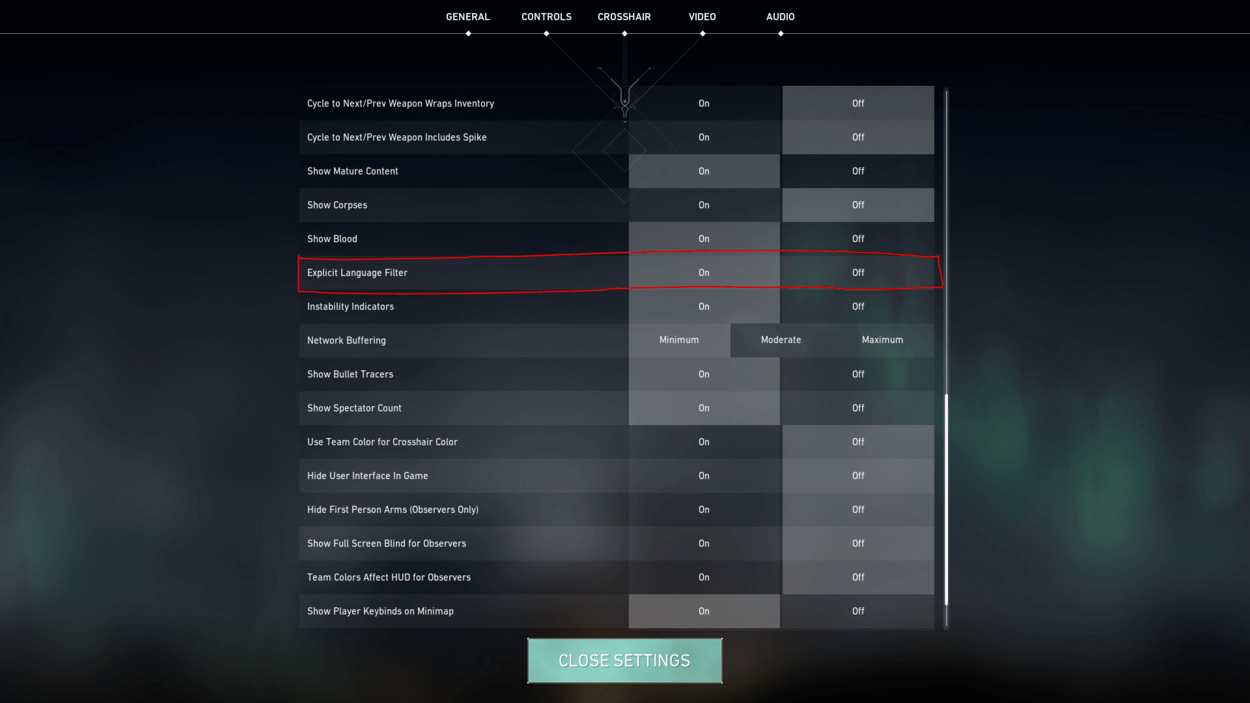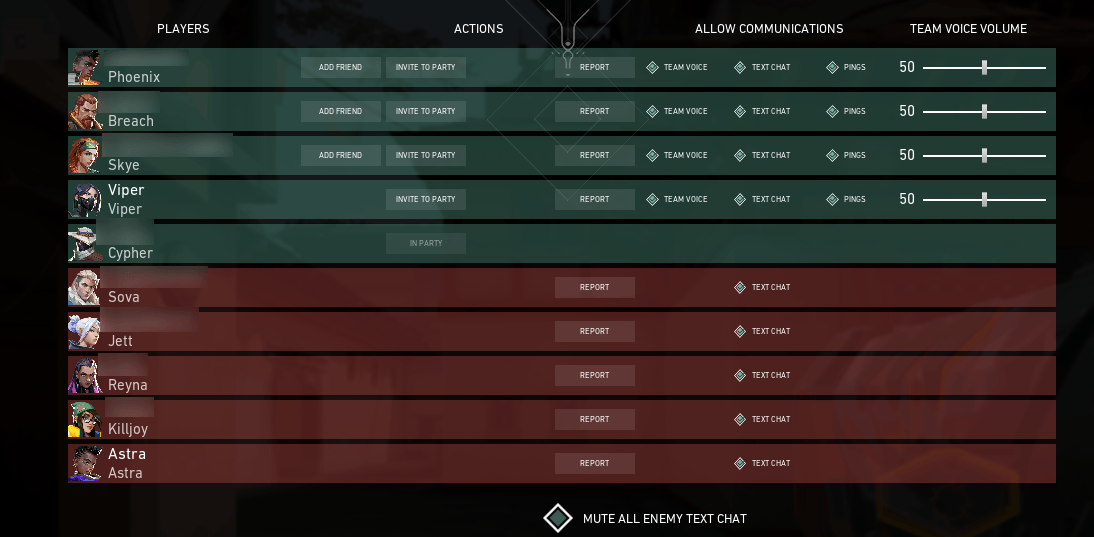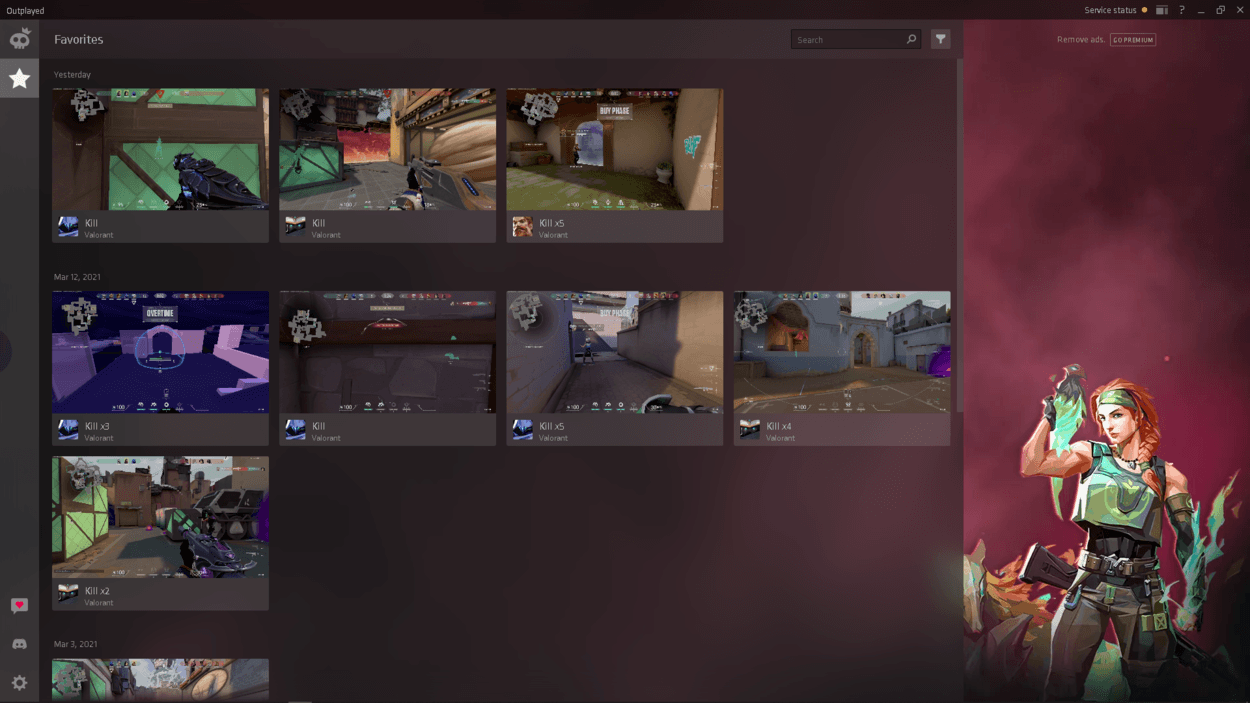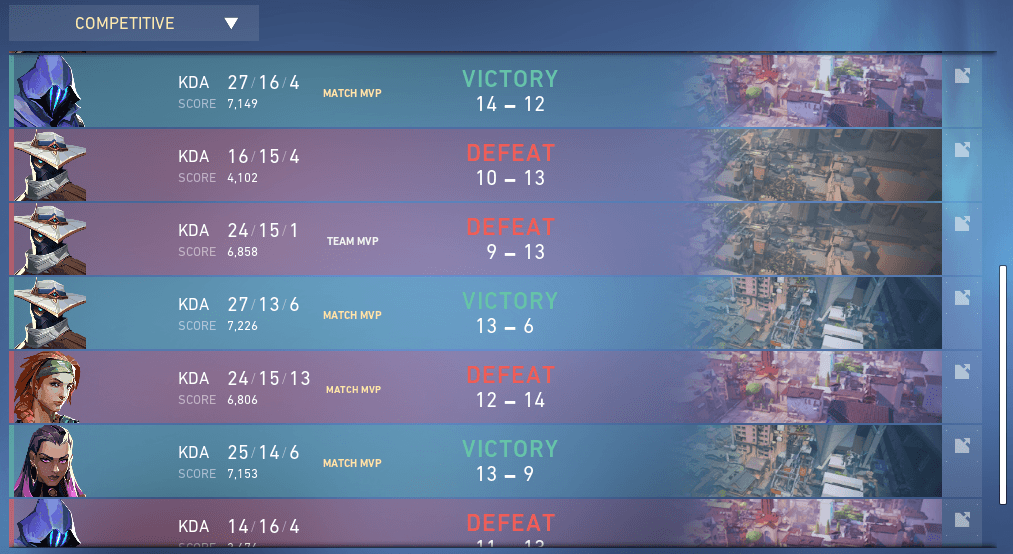A Radiant Mind - A Rundown on How to Have a Good Mindset In Valorant
A good mindset can go a long way on the slow grind in competitive. Here are a few tips to get you started on having a Radiant mindset.
A good mindset can go a long way on the slow grind in competitive. Here are a few tips to get you started on having a Radiant mindset.
Valorant, a team-based tactical FPS, has many means with which a team may achieve victory. With a roster of various agents, an arsenal of deadly weapons, and a wide combination of abilities, victory is all a matter of thirteen rounds.
However, I failed to mention one vital resource key to any successful game: your mind.
A good player can make spray transfers and flicks look clean, outplay entire teams with clever ability usage, or be a clutch god. But an even better player can do so even when faced with toxicity, and even a few losses. One outstanding game is great, but how do you consistently keep that up? How do you keep a strong and consistent healthy mental state?
The internet is full of interesting individuals. Some are a joy to play with and others… Well not so much. So how do you avoid these people? Sadly it isn’t so easy. So, it’s best to mitigate how their toxicity affects your mindset. The simplest way to deal with these people is to ignore them. Not paying attention to chat can is the simplest way, though that can be hard at times and everyone has a limit to how much they can take.
Both teammates and people on the enemy team can be tough to deal with. Thankfully, the mute button exists. However, it doesn’t hurt to try to talk to your teammates at times. Valorant is a team-based FPS after all, so if you still feel like you can still change their perspective then that would be ideal! Talk it out with your teammates and see what needs to be changed. Make it a team effort to improve with each other and avoiding singling out one another. Remember, playing together is better than playing against each other.
Another good way to avoid toxicity is to prevent it. Try to be friendly in your comms and say words of encouragement even when your teammates fail to clutch a round. A small "nice try" or "great job dude you're cracked!" can go a long way in keeping you and your team toxic-free. Keep it light as well! Jokes can help ease tensions and keep your teammates receptive to advice.
As for the enemy team, the aforementioned stands. The mute button is a great tool and so is the profanity filter. Simply not having to see their chat is the ideal path to take when dealing with a toxic enemy team. Giving into their toxicity only makes it easier for them to tilt you, and easier for you to lash out at your teammates.


If you hit Esc in the middle of your game, the first thing that should pop up should be the player list. Here you can adjust who you want to hear and who you'd want to hear less from. There are options to turn off text and voice for teammates. For the enemy team, you can mute text chat from certain individuals. There is also a very convenient "Mute All Enemy Text Chat" button at the bottom in case it's just best to be safe and not deal with the enemy team at all.
Defeat is a given. Sometimes it's close and other times it's a game you wish you would forget. However, even when losing there’s always something to learn. Reviewing VODs is a habit you should consider in order to improve. Checking those close rounds or soul-crushing snowballs can be useful in highlighting where things could have gone better. Be it a misplaced wire, bad crosshair placement, or rotating too early, use losses and misplays as a way to improve and do a quick review of your previous games before you hit that “Play” button due to a knee-jerk reaction.
Note your habits and see how many times they have negatively affected the outcome of a play. A bad crosshair placement, unfortunate timing with your utilities, or an early rotation all and more can add up to that loss just as much as the smallest smart decisions can add up to a win. The more you realize that it's the small things that impact you, the less you'll feel that the loss was a given due to an "agent diff" or playing against a smurf.

There are many screen recording software you can use to review your games. Outplayed, shown above, provides timestamps of kills, deaths, and assists in order to quickly find that one clutch or misplay. In addition, look at your best plays. It doesn't hurt to have a little pride in your most stellar rounds. Look at what you've done right and learn to replicate that in your next games. With a combination of these tactics, you can mitigate mistakes and maximize your performance.
If you do happen to hit the “Play” button again, how many games is enough? One? Two? Until it's morning? It's sometimes hard to put a pause on win streaks or accept significant loss streaks. Even I feel like things have to be balanced and if I’m on a losing streak I want to even it out. However, this won’t always pan out this way. You lose one, you go again until you win one and that single win can cost you a little more than one or two losses. Certainly not a very good trade.
Pacing yourself on how many games you play and not wearing yourself out can see a slow, yet incremental improvement in your performance and on your mental. Think of yourself as a rubber band, the more you pull on it, the less elastic it is as it tends to keep a similar, loose shape over time. Now see how multiple games in a row can lead to a similar effect: being unable to adapt, repeating the same habits, and autopiloting. Take a break every now and then. Or, even better, set a certain amount of games you feel you would be willing to play a day or every few days. This isn't saying you shouldn't be playing for fun, however, there are such things as too much of a good thing.
The more you limit how much you run it back after losses, the less you'll feel compelled to squeeze out a win. Personally, I've seen better improvements in my gameplay and quicker ranks ups through short bursts of competitive games versus a long-winded cycle of nightly wins that cancel out losses and losses that cancel out wins. Below is a prime, and sadly my personal, example of how a checkerboard Career tab can look after attempting to eke out a win late into the night.

In summary, your mentality is your strongest weapon. In the same sense, however, it is the first and toughest obstacle you'll face in any competitive game. The more you learn about yourself, your habits, your playstyle, and how you respond to positive and negative situations and people, the more you can learn where to improve. Take your time as well. Learning should be done with patience so don't be too hard on yourself if you still find it easy to get tilted or hard to not run it back after a few losses. Of course, at the end of the day, Valorant is just a game. But it doesn't hurt to seriously want to keep a positive and healthy outlook towards how you interact and how you feel from playing Valorant. Once you learn to keep a level head and keep that mindset on its toes, your next rank up is only a few clicks away.